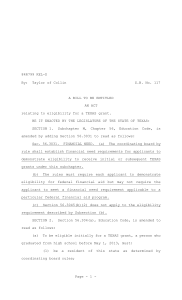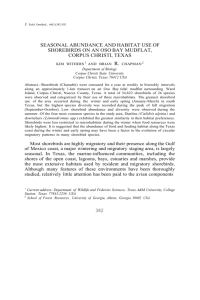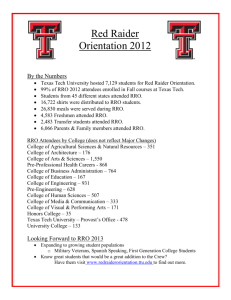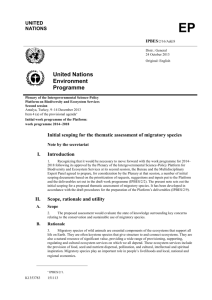BILL ANALYSIS
advertisement
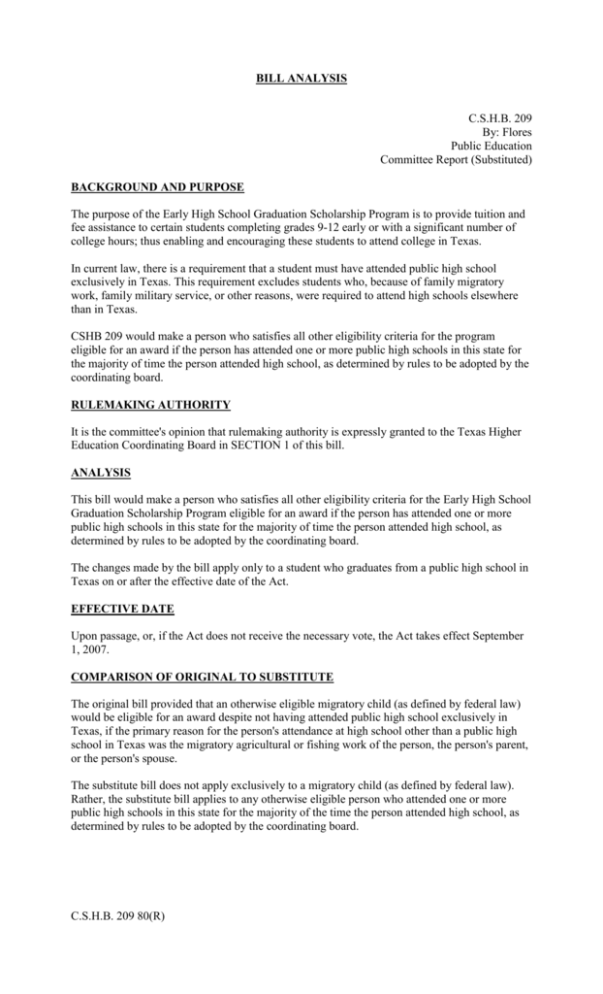
BILL ANALYSIS C.S.H.B. 209 By: Flores Public Education Committee Report (Substituted) BACKGROUND AND PURPOSE The purpose of the Early High School Graduation Scholarship Program is to provide tuition and fee assistance to certain students completing grades 9-12 early or with a significant number of college hours; thus enabling and encouraging these students to attend college in Texas. In current law, there is a requirement that a student must have attended public high school exclusively in Texas. This requirement excludes students who, because of family migratory work, family military service, or other reasons, were required to attend high schools elsewhere than in Texas. CSHB 209 would make a person who satisfies all other eligibility criteria for the program eligible for an award if the person has attended one or more public high schools in this state for the majority of time the person attended high school, as determined by rules to be adopted by the coordinating board. RULEMAKING AUTHORITY It is the committee's opinion that rulemaking authority is expressly granted to the Texas Higher Education Coordinating Board in SECTION 1 of this bill. ANALYSIS This bill would make a person who satisfies all other eligibility criteria for the Early High School Graduation Scholarship Program eligible for an award if the person has attended one or more public high schools in this state for the majority of time the person attended high school, as determined by rules to be adopted by the coordinating board. The changes made by the bill apply only to a student who graduates from a public high school in Texas on or after the effective date of the Act. EFFECTIVE DATE Upon passage, or, if the Act does not receive the necessary vote, the Act takes effect September 1, 2007. COMPARISON OF ORIGINAL TO SUBSTITUTE The original bill provided that an otherwise eligible migratory child (as defined by federal law) would be eligible for an award despite not having attended public high school exclusively in Texas, if the primary reason for the person's attendance at high school other than a public high school in Texas was the migratory agricultural or fishing work of the person, the person's parent, or the person's spouse. The substitute bill does not apply exclusively to a migratory child (as defined by federal law). Rather, the substitute bill applies to any otherwise eligible person who attended one or more public high schools in this state for the majority of the time the person attended high school, as determined by rules to be adopted by the coordinating board. C.S.H.B. 209 80(R)








